Casing and tubing are essential equipment in the process of oil and gas extraction. Their main functions are to provide structural support and protection for the wellbore while transporting fluids such as oil and natural gas. In order to meet these functions, casing and tubing must have characteristics such as corrosion resistance, high temperature resistance, high pressure and high strength. This article will introduce the materials used for casing and tubing and their applications in detail.
1. Types of oil tubing pipe materials
Oil pipes are used to transport fluids such as oil and natural gas, so their materials need to have excellent corrosion resistance, high temperature resistance, high pressure and high strength. According to these requirements, the materials of oil pipes mainly include the following:
1.1 Carbon steel pipe
Carbon steel pipe is one of the most commonly used oil tubing pipe materials. Its main components are carbon and iron. Common grades include Q235, Q345, etc. Carbon steel pipe has the following advantages:
High strength: Carbon steel pipe can withstand high pressure and mechanical stress and is suitable for most oil and gas transportation environments.
Good toughness: Carbon steel has good toughness and can resist external shock and vibration.
Low cost: Carbon steel material is relatively cheap and has low production cost.
However, carbon steel pipes are prone to rust in corrosive environments, so they need to be treated with anti-corrosion when used, such as coating an anti-corrosion layer or adding an anti-corrosion agent.
1. 2 Steel alloy pipes
The materials of steel alloy pipes include steel, chromium, molybdenum, cobalt and other elements, which are proportioned according to the requirements of the use environment. Steel alloy pipes have the following characteristics:
High strength: Steel alloy pipes can withstand higher pressure and mechanical stress.
Wear resistance: Steel alloy pipes have excellent wear resistance and are suitable for high wear environments.
High temperature resistance: Steel alloy pipes can maintain stable performance in high temperature environments and are not easy to deform.
Due to their superior performance, steel alloy pipes are widely used in the field of oil extraction, especially in high pressure, high temperature and highly corrosive environments.
1.3 Stainless steel pipes
Stainless steel pipes are materials with excellent corrosion resistance and are generally made of 316L stainless steel. Its main features include:
Corrosion resistance: Stainless steel pipes have excellent corrosion resistance and are suitable for various corrosive media.
High temperature resistance: Stainless steel pipes can be used in high temperature environments and are suitable for high temperature process flows.
High strength: Stainless steel pipes have high mechanical strength and can withstand high pressure.
High gloss: Stainless steel pipes have a smooth surface and beautiful appearance, suitable for high-demand industrial and civil occasions.
Stainless steel pipes are widely used in petroleum, chemical, pharmaceutical and other fields, especially in corrosive environments.
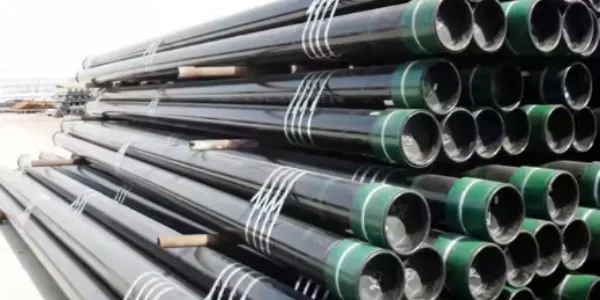
2. Application of oil tubing pipes
Oil tubing pipes are widely used in oil extraction, petrochemical industry, natural gas transportation and other fields. In the oil industry, oil pipes, as important equipment for oil extraction, undertake the important task of transporting oil and gas. According to different oil extraction processes, oil pipes can be divided into two types: ground oil extraction and underground oil extraction, and the corresponding oil pipe materials are also different.
2.1 Ground oil extraction
In ground oil extraction, the system pressure is relatively low, and the oil tubing pipes mainly use carbon steel pipes. Carbon steel pipes are low in cost and can meet the basic requirements of ground oil extraction, and are suitable for transporting oil, gas and other liquids.
2.2 Underground oil extraction
In underground oil extraction, the system pressure is high, and the oil tubing pipes need to use high-strength materials such as steel alloy pipes. At the same time, the underground environment is complex, and the oil pipes need to be specially treated to prevent corrosion and wear. For example, high-temperature and corrosion-resistant stainless steel pipes or carbon steel pipes coated with anti-corrosion layers are used to improve their service life and reliability.
3. Types of materials for oil casing pipe
Oil casing pipe plays a vital role in the oil drilling process, providing structural support and protection for the wellbore. The material of the casing must have characteristics such as high strength, corrosion resistance and wear resistance. Common oil casing materials include high-strength carbon steel and alloy steel.
3.1 High-strength carbon steel
High-strength carbon steel has become a popular choice for oil casing pipe due to its high strength and cost-effectiveness. This material has the following characteristics:
Strong pressure bearing capacity: High-strength carbon steel can withstand the high pressure and mechanical stress encountered during drilling.
High temperature resistance: High-strength carbon steel can maintain good performance in high temperature environments.
Good weldability: Carbon steel has good weldability, which facilitates the connection of multiple casing pipe sections together.
3.2 Alloy steel
Alloy steel is a more specialized material used for oil casing pipe to enhance its performance in specific drilling environments. Alloy steel improves its mechanical properties, including strength, hardness and corrosion resistance, by alloying with elements such as chromium, nickel or molybdenum. Its characteristics include:
High strength and hardness: Alloy steel has higher strength and hardness, suitable for high pressure and high wear environment.
Excellent corrosion resistance: Alloy steel has better corrosion resistance in corrosive environment, suitable for harsh environment such as sulfur-containing oil wells.
High temperature resistance: Alloy steel can maintain stable mechanical properties in extremely high temperature environment.
4. Application of oil casing pipe
Oil casing pipe is widely used in the extraction and transmission of oil and natural gas. Its main function is to provide structural support for the wellbore, prevent the wellbore wall from collapsing, and ensure the smooth transportation of oil and gas in the well. Oil casing is usually used in the following aspects:
4.1 Wellbore support
During the oil drilling process, the wellbore needs to withstand huge rock pressure. High-strength oil casing can provide sufficient support to prevent the wellbore wall from collapsing and ensure the smooth progress of drilling operations.
4.2. Oil and gas transportation in the well
Oil casing pipe is used for the transportation of oil and gas in the well after the well is completed. High-strength and corrosion-resistant casing materials can ensure the smooth transportation of oil and gas and extend the service life of the casing pipe.
4.3 Special environment application
In special environments such as sulfur-containing oil wells, high-temperature and high-pressure wells, alloy steel casing is required. Alloy steel casing has excellent corrosion resistance and high temperature resistance, and can maintain stable mechanical properties in harsh environments to ensure the safety and stability of the wellbore.
5. Manufacturing process of oil casing and tubing
In addition to the material composition, the design and manufacturing process of oil casing and tubing also play an important role in its performance. According to the different manufacturing processes, oil casing and tubing can be divided into seamless steel pipes and welded steel pipes.
5.1 Seamless steel pipe
Seamless steel pipe is made of a whole piece of steel without any seams, which has higher strength and uniformity. The manufacturing process of seamless steel pipe includes hot rolling, cold drawing, etc., which can ensure the high precision and high performance of the pipe.
5.2. Welded pipe
Welded pipe is made by welding single steel plates together, which has the advantages of low cost and flexible manufacturing. The manufacturing process of welded pipe includes arc welding, spiral welding, etc., which can produce pipes of different specifications and shapes according to needs.
6. Conclusion
Oil casing and tubing play an important role in the process of oil and natural gas extraction. Their material selection and manufacturing process directly affect their performance and service life. Carbon steel pipe, steel alloy pipe and stainless steel pipe are common oil pipe materials, and high-strength carbon steel and alloy steel are common oil casing materials. According to the specific use environment and needs, selecting appropriate materials and manufacturing processes can improve the performance of oil casing and tubing and ensure the safe extraction and transportation of oil and natural gas.








 English
English Español
Español بالعربية
بالعربية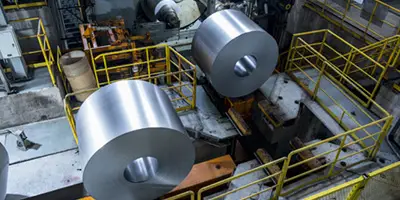

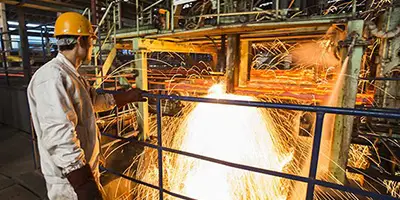
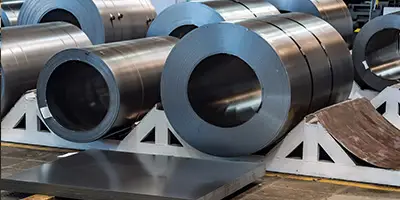

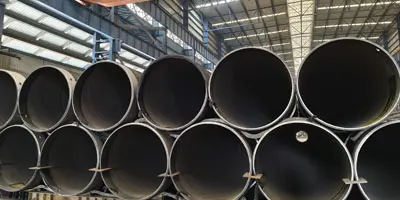
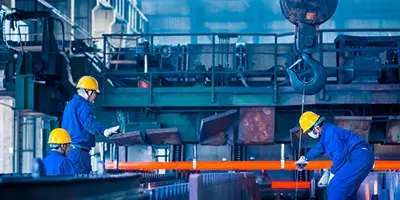
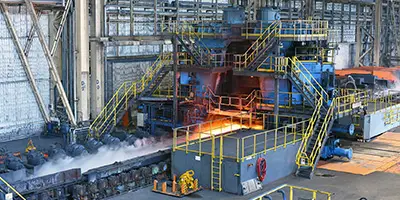
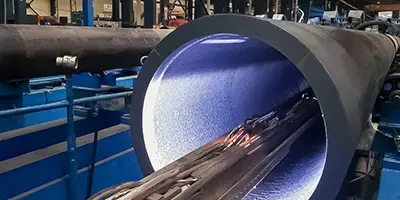
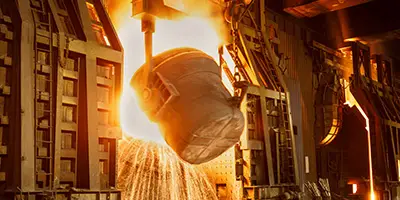


 Phone :
Phone :  Whatsapp :
Whatsapp :  Email :
Email : 


